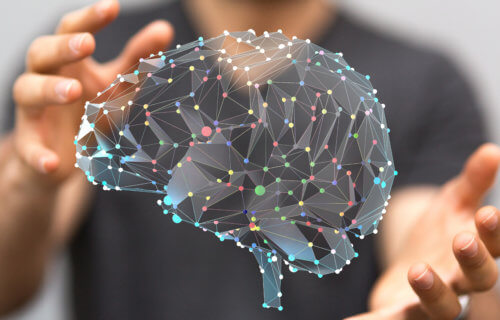- Author wrongly hypothesized that effects of sugar on brain were overblown: ‘I had hoped to be able to kill a myth.’
- ‘After just 12 days of sugar intake, we could see major changes in the brain’s dopamine and opioid systems.’
AARHUS, Denmark — Sugar is notorious for providing a jolt of energy followed by a lethargic period. Still, virtually no one thinks of sugar as a legitimate drug, and most parents have no problem giving their kids a few sugary treats at least from time to time. Now, a new study conducted at Aarhus University in Denmark finds that sugar actually influences our brains’ reward centers in essentially the same way as addictive drugs.
The research team had a group of pigs consume sugar water for 12 days, and then examined their brain chemistry.
Even the study’s authors admit they were surprised by the extent of their findings.
“There is no doubt that sugar has several physiological effects, and there are many reasons why it is not healthy. But I have been in doubt of the effects sugar has on our brain and behavior, I had hoped to be able to kill a myth,” comments study author Michael Winterdahl, Associate Professor at the AU Department of Clinical Medicine, in a release.
A total of seven pigs took part in the study, each consuming two liters of sugar water everyday over the course of the research period. In order to examine sugar’s effects on the pigs’ brains, each animal’s brain was imaged three times: once before the experiment, once after the first day of sugar consumption, and once more after the 12-day period.
“After just 12 days of sugar intake, we could see major changes in the brain’s dopamine and opioid systems. In fact, the opioid system, which is that part of the brain’s chemistry that is associated with well-being and pleasure, was already activated after the very first intake,” Winterdahl explains.
Whenever an individual has a meaningful or positive experience, whether that be sex, a nice social interaction, or just learning an interesting new fact or skill, the brain sends out a reward, using neurotransmitters like dopamine, that invokes feelings of enjoyment, happiness, or contentment. According to the research team, while the aforementioned experiences would be considered “natural” reward-inducing stimuli, “artificial” stimuli like drugs also activate the brain’s reward system in a similar way.
“If sugar can change the brain’s reward system after only twelve days, as we saw in the case of the pigs, you can imagine that natural stimuli such as learning or social interaction are pushed into the background and replaced by sugar and/or other ‘artificial’ stimuli. We’re all looking for the rush from dopamine, and if something gives us a better or bigger kick, then that’s what we choose,” Winterdahl says.
In a perfect world, it would be great to conduct a similar experiment on sugar’s addictive properties and influence on the brain using actual people, but Winterdahl says such a research effort is easier said than done.
“It would, of course, be ideal if the studies could be done in humans themselves, but humans are hard to control and dopamine levels can be modulated by a number of different factors. They are influenced by what we eat, whether we play games on our phones or if we enter a new romantic relationship in the middle of the trial, with potential for great variation in the data,” he explains.
The pigs used in this study served as a strong substitute for human subjects because the brain of a pig is fairly complex, similarly shaped to human brains, and large enough to be imaged using human brain scanners.
The study is published in Scientific Reports.
